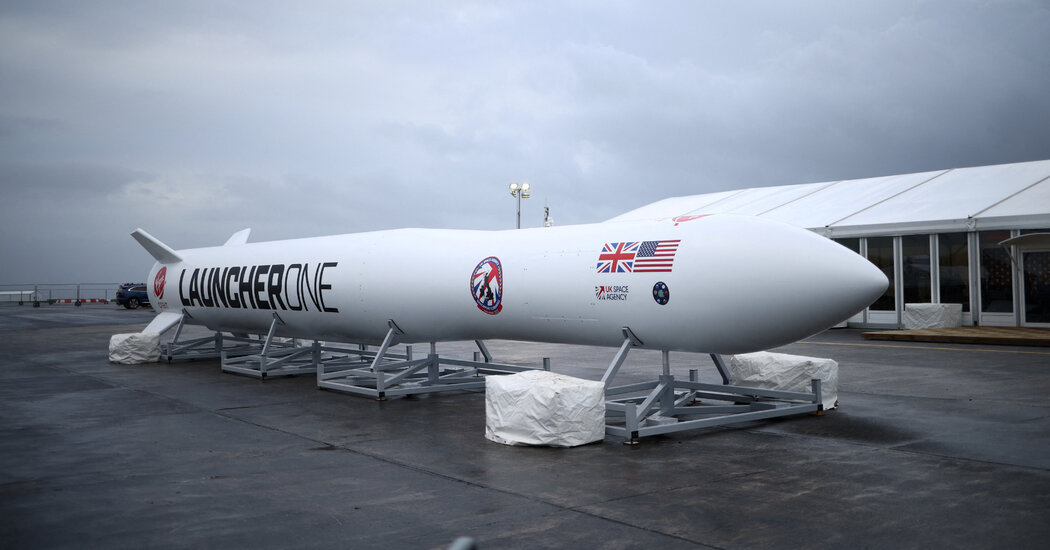Britain hopes to get into space on Monday night, as a modified Boeing 747 carrying a 70-foot rocket filled with satellites is expected to lift off from a runway in Cornwall, southwest England. If the weather and other conditions are favourable, the launch would mark the first time satellites have been launched from British soil.
An hour later after takeoff, off the coast of Ireland, the plane will drop the rocket, which will fire and carry nine satellites to orbit positions 300 to 600 miles above Earth. People in the British aerospace industry say the breakthrough will be hugely important, even though the launch service will be provided by a California-based company, Virgin Orbit, founded by entrepreneur Richard Branson.
Having launch sites available in Britain rather than going to distant locations like Cape Canaveral in Florida or New Zealand “makes a huge difference in terms of being able to develop satellites and fly them,” said Emma Jones, head of of UK business development for RHEA Group, a space security company, which has placed a satellite on the Virgin Orbit rocket.
The expected launch is the first major payoff of an effort by the UK government to boost the country’s aerospace industry in the wake of Brexit, which has strained scientific and business ties with the European Union, the country’s main trading partner. has put.
While the current launch has been delayed by about two months and the next one is still not planned, Dan Hart, CEO of Virgin Orbit, said Britain appears to be on track to develop a launch capability. Virgin Orbit has already launched satellites from the United States and is looking to establish itself as a company that can do so from anywhere a 747 can land.
“As in the US, it is a combination of commercial, civil and national security that makes a space program or a space launch program successful,” he said in an interview.
Mr Hart said the payload on the Virgin Orbit missile, which includes commercial satellites as well as devices sponsored by the British Ministry of Defense and the US Naval Research Laboratory, was an “excellent model” for the combined sources of funding needed to bear the costs. of a full-service space program.
Britain already has a sizable satellite industry and has been one of the leaders in designing and making relatively inexpensive, shoebox-sized devices that are increasingly important for communications, surveillance and other purposes.
The government believes that the ability to send these satellites into orbit should give Britain an additional head start. With modest resources, the government has encouraged receptive local authorities, such as those in Cornwall and others in Scotland, to develop sites suitable for vertical rocket launches or jumbo jets used as launch pads.
Mrs Jones, of Rhea Group, said the prospect of launch sites in Britain encouraged its employers, a private Belgian company, to have their device built in Harwell, near Oxford, where there is a cluster of aerospace companies.
Ms. Jones’ satellite is of the type that analysts say represents a growth area for the space industry. The box, measuring approximately 12 x 4 x 4 inches (30 x 10 x 10 cm), cost less than $1 million to build and is intended to be the first of a series of orbital vehicles that could be deployed if a cyber-attack or technical problem disabled the GPS. navigation system off.

